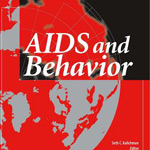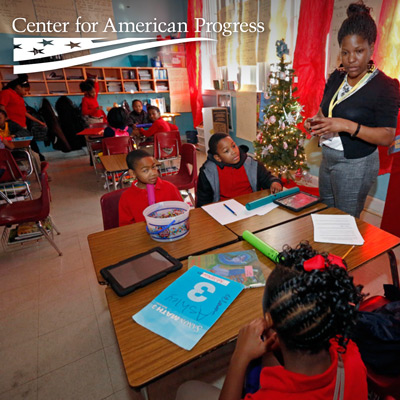Census Data Shows Need for Further Efforts to Attract Blacks Into STEM Fields
New data from the U.S. Census Bureau shows that while while Blacks are 10.8 percent of all employed workers, they make up only 6.4 percent of all employees in STEM occupations. Blacks make up an even smaller percentage of all workers in specific STEM jobs.
Outreach Programs for Parents Can Reduce School Mobility Among Black Students
Students who change schools often have problems adjusting to the new educational environment and this can impact their academic performance. Programs that reach out to Black parents can reduce the likelihood that children will change schools.
Factors That Foster Educational Success Among Youth From Low-Income Families
A new study conducted by researchers at the University of California at Los Angeles, has identified five factors that have a major impact on whether or not students from low-income families succeed in higher education.
Harvard Study Finds Different Neural Activity When Subjects View Black and White Faces
Researchers in the department of psychology at Harvard University have found a region of the brain where neural patterns changed when test subjects viewed either a Black or White face.
How Racial Bias Affects the Perception of Fairness in Economic Decisions
In an ultimatum game, participants were more likely to regard low financial offers from Black proposers as unfair and were thus more willing to "punish" the Black proposer by leaving them with no money.
Gender Differences in Acceptance of Black Students at Predominantly White High Schools
The research found that stereotypes about African American boys' prowess in sports and their general perception as being "cool or street smart," helps them cope in social situations better than African American girls.
Study Finds Childhood Poverty Affects Adult Brains’ Ability to Control Emotions
This study is particular important to African Americans. Some 21 percent of all American children under the age of 18 are now being reared in poverty. And Blacks are three times as likely to be poor as Whites.
Emory University Study Finds Huge Racial Disparity in Rates of Lupus
A study led by researchers at the Emory University School of Medicine in Atlanta finds that African American women were three times as likely as White women to contract lupus, a serious autoimmune disease.
Georgia Tech Surveys Its Campus Community on Diversity Issues
The Georgia Institute of Technology in Atlanta recently completed a survey of members of the campus community that showed a high level of satisfaction with the university's diversity efforts and climate for inclusiveness.
African American Teachers Tend to Reduce Black Teenage Pregnancy Rates
Black teenage girls in Georgia are significantly more likely to become pregnant than White teenage girls. But the research shows that for Black teenage girls who have African American teachers, the pregnancy rate goes down.
African American College Students Are Increasingly Studying Abroad
According to the Institute of International Education, in the 2011-12 academic year, Blacks made up 5.3 percent of the total of 283,332 students who studied abroad. This is up from 3.5 percent six years earlier.
Students From Sub-Saharan Africa at U.S. Colleges and Universities
In the 2012-13 academic year, there were 30,585 students from sub-Saharan Africa enrolled at colleges and universities in the United States. They made up 3.7 percent of the 819,644 foreign students at U.S. colleges and universities.
Report Documents 20 Years of Research on Black Fraternities
The report, published by the Center for the Study of the College Fraternity at Indiana University, offers an extensive bibliography documenting 20 years of scholarly research on Black Greek-letter organizations.
Report Documents Huge Shortage of Black Women Faculty in STEM Disciplines
The gap between the percentage of Black women in STEM faculty posts and the percentage of Black women in the general working-age population is wider than for any other racial or ethnic group.
A Huge Racial Gap in STEM Degree Program Attrition Rates
New data from the U.S. Department of Education shows that almost two-thirds of Black students who start out in STEM-related bachelor's degree programs do not complete their studies in these fields.
Racial Disparities in Cancer Patient Treatment
The data showed that Blacks were 10 percent less likely than Whites to have primary tumor surgery, 17 percent less likely to undergo chemotherapy, and 30 percent less likely to receive radiotherapy.
Sub-Saharan Nations Sending the Most Scholars to Teach in the U.S.
In 2011-12, there were 1,887 scholars from sub-Saharan African nations teaching in the U.S. This is down from 2,750 just four years ago. Nigeria sent 315 scholars to teach in the U.S., the most of any sub-Saharan African nation.
Study Finds Limited Success for Faculty Diversity Efforts at U.S. Medical Schools
A new study by researchers at the Children's Hospital of Philadelphia and the University of Pennsylvania, finds that the faculty diversity efforts established in recent years at U.S. medical schools have had only limited success.
Many Black Women College Students Are Hesitant About Breastfeeding Their Future Children
Dr. Urmeka Jefferson of the University of Missouri surveyed African American women college students on their attitudes toward breastfeeding and whether they intended to breastfeed their infants if and when they had children.
Rutgers University Study Finds Increase in “Concentrated Poverty”
More than 11 million Americans, 4 percent of the total U.S. population, live in these high poverty neighborhoods and 67 percent of the 11 million people in these high poverty areas are either Black or Hispanic.
Stanford Center on Poverty and Inequality Issues Its First Annual Report
In the report, some of the nation's leading economists examine labor markets, poverty indicators, income and wealth inequality, the safety net, and poverty's impact on health and education.
University of Iowa Survey Finds Widespread Racial Disparities in Children’s Health
The survey found that African American and Latino children experience lower health status, lower quality of care, higher unmet need for care, and more food insecurity than White or Asian children in the state.
Academic Study Finds Racial Differences in How Doctors Converse With HIV Patients
Healthcare providers talked about strict adherence to a drug regimen with Black patients more so than they did with White patients, regardless of whether there had been a problem with sticking to the regimen.
New Government Data Shows a Racial Gap in Home Internet Use
New data from the U.S. Census Bureau shows that 83.6 percent of the non-Hispanic White population in the United States has Internet access in their home. For Black Americans, the figure is 68 percent.
The Advanced Placement Tests on Which Black Students Have Been More Likely to Succeed
Of the 34 AP examinations offered in 2013, African Americans scored the highest on several foreign language tests. Also the racial gap in AP scores were the lowest on many of the foreign languages tests.
For Those With Ph.D.s in STEM Fields, Blacks More Likely to Work in Academia...
A new study of more than 400,000 doctoral recipients of all races from 1959 to 2010 finds that 49 percent of Black women and 46 percent of Black men with Ph.D.s in STEM fields hold academic positions.
University Study Examines Racial Preferences of Online Dating Site Users
In a study of participants at an online dating site, those who indicated that race was unimportant were still overwhelmingly more likely to open profiles of potential partners that were of the same race or ethnic group.
Will Healthcare Reform Eliminate Racial Disparities in Cardiac Care?
A new study by researchers at Harvard Medical School and the Howard University College of Medicine finds that healthcare reform in Massachusetts, which has many similarities to the federal Affordable Care Act (a.k.a. Obamacare), has not reduced racial disparities in cardiovascular care.
New Report Examines Ways to Increase Retention of Black and Other Minority Teachers
The Center for American Progress has released a new study documenting the importance of efforts to retain Black and other minority teachers in our nation's public schools. The report also lists recommendations on what can be done to increase retention rates.
For Ph.D.s in STEM Fields, Blacks Are More Likely Than Whites to Have Non-STEM...
A new study finds that one of every six students who graduate with a Ph.D. in a STEM discipline pursues a career in a non-STEM field. For Blacks with doctorates in STEM fields, one in five pursue a career path outside STEM.
Black Degree Attainments in Engineering: Long Way to Go to Reach Parity
In 2005, Black earned 5.3 percent of all bachelor's degree awarded in engineering. In 2012, Blacks earned only 4.2 percent of all bachelor's degrees awarded in the discipline. Blacks did slightly better in graduate degrees in engineering.
New York University Program Improves Black Participation in Medical Studies
A new program developed at the New York University College of Nursing uses a peer-driven recruitment and education program that focuses on the problem of disproportionate involvement of African Americans in HIV/AIDS medical studies.
In Clinical Trials, New Drug for Sickle-Cell Disease Shows Promise
The compound was originally developed by a team of researchers at the Institute for Structural Biology and Drug Discovery, a joint effort of the School of Medicine and the School of Pharmacy at Virginia Commonwealth University.
Black Physician Leading the First Phase III Clinical Trial for a Preeclampsia Drug
Alan Tita is a professor in the department of obstetrics and gynecology at the University of Alabama Birmingham. He is a lead investigator for the clinical trial for a drug that may reduce infant and maternal mortality rates.
Whites’ Support of Prison Reform Depends on Their Perception of the Black Prison Population
A new study by psychologists at Stanford University finds that when White Americans are informed about the disproportionate number of African Americans in prisons, they are less likely to support prison reform.
Parents’ Job Loss Can Increase Suicide Behaviors Among Black Adolescents and Teenagers
A study led by researchers at Duke University finds that when mass layoffs occur in the general population, there is a corresponding rise in suicide-related behaviors among African American adolescents and teenagers in the area where the layoffs occurred.















































